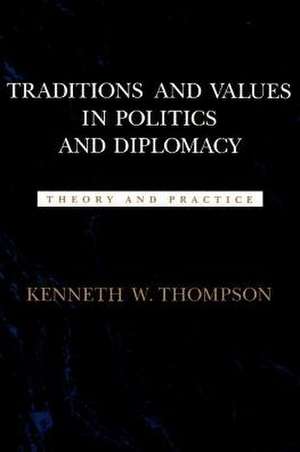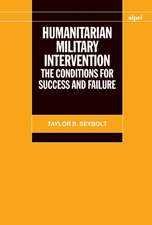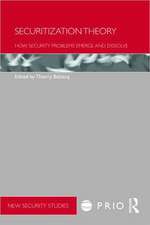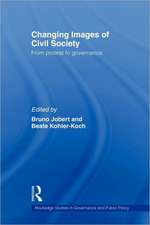Traditions and Values in Politics and Diplomacy: Political Traditions in Foreign Policy
Autor Kenneth W Thompsonen Limba Engleză Paperback – 30 noi 1992
Preț: 292.05 lei
Nou
Puncte Express: 438
Preț estimativ în valută:
55.88€ • 58.50$ • 46.24£
55.88€ • 58.50$ • 46.24£
Carte tipărită la comandă
Livrare economică 07-21 aprilie
Preluare comenzi: 021 569.72.76
Specificații
ISBN-13: 9780807117460
ISBN-10: 0807117463
Pagini: 368
Dimensiuni: 150 x 224 x 25 mm
Greutate: 0.5 kg
Editura: Louisiana State University Press
Seria Political Traditions in Foreign Policy
ISBN-10: 0807117463
Pagini: 368
Dimensiuni: 150 x 224 x 25 mm
Greutate: 0.5 kg
Editura: Louisiana State University Press
Seria Political Traditions in Foreign Policy
Textul de pe ultima copertă
In this informed and comprehensive assessment of current issues in international politics, Kenneth W. Thompson addresses the role that traditions and values play in shaping change and in helping us to understand its implications. He challenges the idea that the enormous changes in contemporary national and international life have rendered the consideration of traditions and values obsolete. Thompson's purpose is to illuminate the problems we face and to set forth general principles directed toward an informing theory on traditions and values as they affect politics and diplomacy, while at the same time warning of the pitfalls and limitations of theory. In the first section of the book, Thompson draws on classical and Judaeo-Christian traditions in defining the relationship between philosophy, religion, and politics. He then examines the application of abstract values to such political realities as national interest, and goes on to consider the question of moral values in international diplomacy and politics. In a series of case studies, Thompson reflects on human rights, disarmament and arms control, and human survival. Maintaining that the implementation of traditions and values is sometimes uniquely the task of the American presidency, he studies the administrations of four postwar presidents--Dwight D. Eisenhower, John F. Kennedy, Lyndon B. Johnson, and Richard M. Nixon--in the light of the executives' attitudes toward ethics and politics. Finally, Thompson considers the implications of national decline and the breakdown of international order for the future of the United States. The vast knowledge of international affairs and of the literature of politics that Kenneth W. Thompsonbrings to this timely and reflective book makes it exceptionally readable as well as intellectually challenging.























